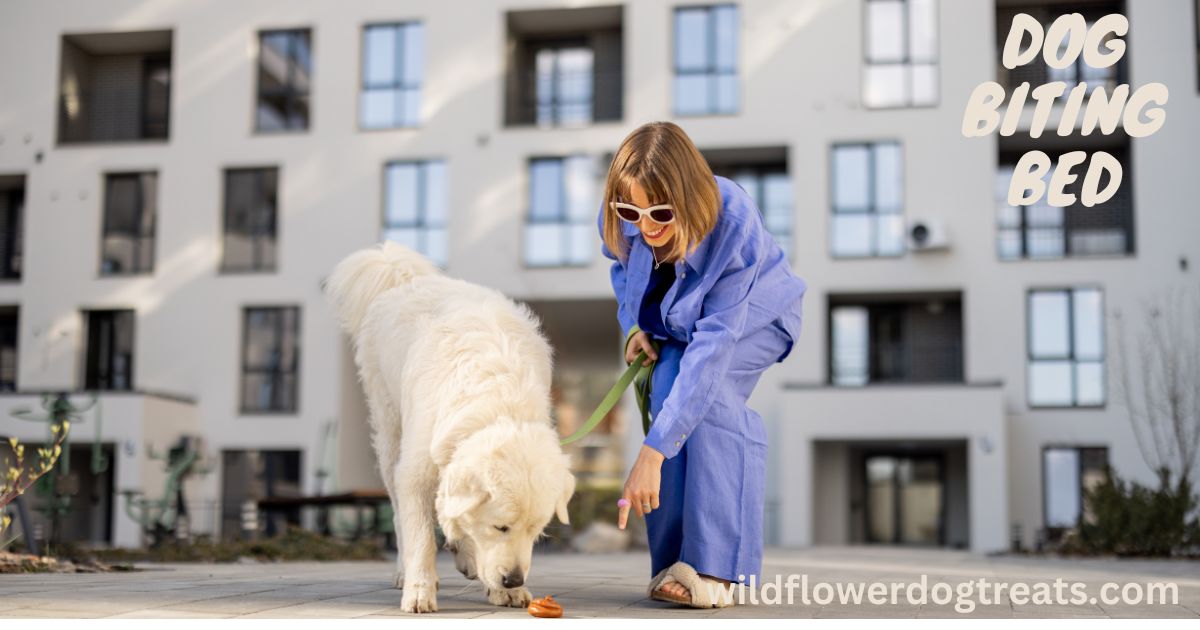There are a few potential reasons why your dog is pooping on the bed. It may be due to anxiety, fear, a change in routine, or a health issue.
Addressing this behavior promptly is crucial to prevent it from becoming a habit. Additionally, your dog may be smelling your scent on the bed and using it as a familiar spot to relieve themselves. To understand and stop this behavior, you may need to evaluate your dog’s health, routine, and emotions, as well as implement proper training.
By addressing these factors, you can effectively curb this unwanted behavior and create a comfortable environment for both you and your dog.
Canine Toilet Habits
Understanding why dogs exhibit certain toilet behaviors, such as pooping on the bed, requires delving into their natural instincts, toilet training, and behavioral influences. Unraveling these factors can shed light on why dogs engage in such behaviors and how to address them effectively.
Natural Instincts
The natural instincts of dogs play a significant role in their toilet habits. In the wild, dogs mark their territory and eliminate waste to establish their presence and avoid potential threats. This instinct often translates into dogs seeking out familiar and comfortable spots, such as beds, to relieve themselves. Understanding this primal behavior can help owners anticipate and prevent accidents.
Toilet Training
Toilet training is crucial in shaping a dog’s behavior. Consistent and positive reinforcement during toilet training can help dogs understand appropriate elimination areas. However, lapses in training, changes in routine, or inadequate access to outdoor spaces may lead to accidents, including pooping on the bed. Maintaining a regular toilet schedule and providing ample opportunities for outdoor relief can aid in preventing such incidents.
Behavioral Influences
Apart from natural instincts and training, various behavioral influences can contribute to a dog’s choice of eliminating on the bed. Anxiety, fear, or stress can prompt dogs to seek comfort and security in familiar spaces, leading to such unexpected behaviors. Addressing the underlying emotional and environmental triggers, along with ensuring proper health and wellness, is essential in modifying these behaviors and fostering a positive toilet routine for the dog.
Common Causes Of Bed Pooping
Finding your dog’s poop on the bed can be frustrating and confusing. It’s important to understand that there are several potential reasons why your furry friend might exhibit this behavior. By identifying the most common causes of bed pooping, you can take appropriate steps to address the issue and prevent it from happening again.
Health-related Issues
When a dog starts pooping on the bed, it could be a sign of an underlying health problem. Gastrointestinal issues such as food intolerances, irritable bowel syndrome, parasites, and incontinence may lead to accidental defecation in unusual places, including the bed. Similarly, aging dogs may experience loss of bowel control, resulting in accidents on the bed. It’s crucial to consult a veterinarian to rule out any medical conditions causing this behavior.
Behavioral And Emotional Triggers
Anxiety and stress can drive dogs to exhibit unusual elimination behaviors, including pooping on the bed. Separation anxiety, fear of loud noises, changes in routine, or the introduction of a new pet or family member can all contribute to elevated stress levels in dogs. Additionally, territorial marking or attention-seeking behavior can play a role in this unwanted behavior. Understanding and addressing these emotional triggers can help curb the habit of pooping on the bed.
Addressing Bed Pooping
Discovering that your beloved pet has left a surprise on your bed can be frustrating and confusing. Understanding why your dog is exhibiting this behavior is the first step towards finding a solution.
Seeking Veterinary Advice
If your dog’s inappropriate elimination behavior persists, seeking veterinary advice is crucial. It’s essential to rule out any underlying medical conditions that could be causing this behavior. Consulting a veterinarian will help determine if there are any health issues contributing to your dog’s tendency to poop on the bed. Once medical causes have been ruled out, you can then focus on addressing the behavior through other means.
Behavioral Training
Behavioral training is another key approach to curbing bed pooping habits. Consistent and positive reinforcement can help modify your dog’s behavior. Utilizing rewards and redirection techniques, along with obedience training, can aid in correcting this unwanted behavior. Addressing anxiety, fear, or excitement issues through training strategies can also lead to positive changes in your pet’s elimination habits.
Environmental Modifications
Making environmental modifications can also play a role in preventing bed pooping. Limiting your pet’s access to the bed when unsupervised, establishing a regular potty schedule, and creating a comfortable and designated elimination area can all contribute to modifying this behavior. Additionally, ensuring your dog’s living space is enriched with toys and activities can help alleviate boredom and reduce stress, potentially minimizing the likelihood of bed pooping incidents.
Prevention And Long-term Solutions
Certainly! Is your dog pooping on the bed becoming a recurring problem? Gastrointestinal issues, anxiety, and lack of proper training can be the root causes. Implementing a consistent routine, seeking medical advice, and providing sufficient mental stimulation can aid in preventing this behavior in the long term.
Consistent Routine
Establishing a consistent routine for your dog can help prevent accidents such as pooping on the bed. Dogs thrive on routine, so feeding, walking, and bathroom breaks should occur at the same times each day. This stability can create a sense of predictability for your furry friend, reducing the likelihood of undesirable behaviors.
Positive Reinforcement
Positive reinforcement is crucial in training your dog to use designated bathroom areas. When your dog eliminates in the appropriate spot, praise and reward them to reinforce the desired behavior. Using treats, verbal praise, and affection can help your dog understand where they should relieve themselves, decreasing the chances of accidents on the bed.
Monitoring And Patience
Monitoring your dog’s behavior and providing gentle guidance and correction is essential in addressing the issue of pooping on the bed. Be patient as you work with your dog to modify their behavior, and observe for any signs of distress, anxiety, or health issues that may be contributing to the behavior. Patience and consistency are key to achieving long-term solutions.
Frequently Asked Questions On Why Does My Dog Poop On The Bed
What Does It Mean When A Dog Poops While Lying Down?
When a dog poops while lying down, it could indicate neurological issues or bowel incontinence. This may be accompanied by other signs like changes in gait. Addressing this behavior promptly is crucial to prevent it from becoming a habit.
Why Does My Dog Poop On The Bed?
Dogs may poop on the bed due to anxiety, health issues, or seeking your scent for comfort. It’s important to address this behavior promptly by consulting a vet, providing mental stimulation for your dog, and ensuring regular bathroom breaks.
What Could Be Causing My Dog To Poop On The Bed?
Several reasons could lead to this behavior, including separation anxiety, gastrointestinal problems, incontinence, or discomfort. Identifying the root cause through a veterinary check-up and implementing proper training and care can help prevent reoccurrence.
How Can I Stop My Dog From Pooping On The Bed?
To discourage this behavior, ensure consistent potty training, create a comfortable designated sleeping area for your dog, and address any underlying medical or anxiety issues. Positive reinforcement and patience are key in redirecting their behavior.
Conclusion
If your dog has been pooping on the bed, it’s essential to identify the underlying cause. Whether it’s due to anxiety, a change in routine, or health issues, addressing the behavior promptly is crucial. By understanding the reasons behind this behavior, you can take appropriate steps to help your furry friend and prevent it from becoming a habit.





Can you be more specific about the content of your article? After reading it, I still have some doubts. Hope you can help me.
Thanks for sharing. I read many of your blog posts, cool, your blog is very good.
Can you be more specific about the content of your article? After reading it, I still have some doubts. Hope you can help me.